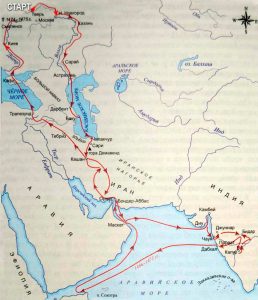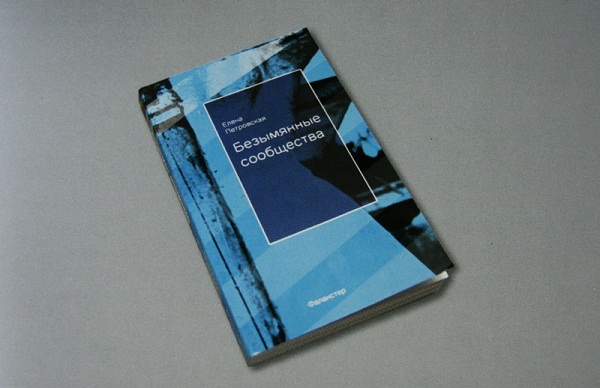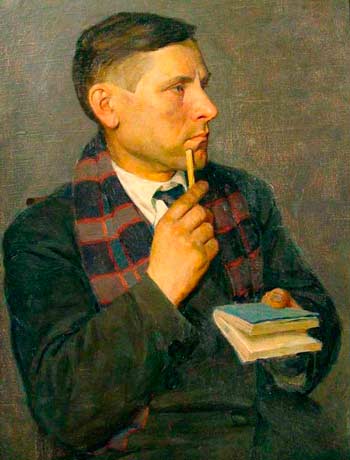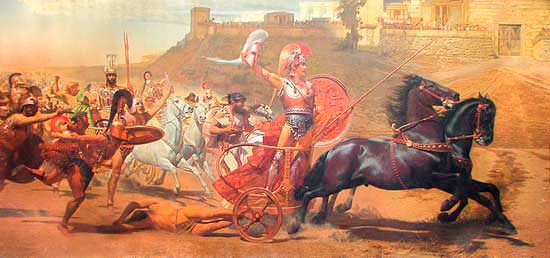Afanasy Nikitin “Going beyond three seas”
 “Going beyond the three seas of Afanasy Nikitin” (see its full text) – a description by a 15th century Russian man of his journey to far India.Afanasy Nikitin was a Tver merchant. In 1466, he joined the embassy of Grand Duke Ivan III, who was traveling to Azerbaijani Shemakha. Nikitin went to Shamakhi for commercial purposes, but on the way he was robbed by the Tatars, who took everything from him, even the Bible, which, as a very religious man, he never parted. Then he decided to try his luck and continue to trade: he did not want to return home empty-handed. So he made his trip “for three seas” (the Caspian, Black and Indian), and got by dry road to India before the famous navigator Vasco da Gama.
“Going beyond the three seas of Afanasy Nikitin” (see its full text) – a description by a 15th century Russian man of his journey to far India.Afanasy Nikitin was a Tver merchant. In 1466, he joined the embassy of Grand Duke Ivan III, who was traveling to Azerbaijani Shemakha. Nikitin went to Shamakhi for commercial purposes, but on the way he was robbed by the Tatars, who took everything from him, even the Bible, which, as a very religious man, he never parted. Then he decided to try his luck and continue to trade: he did not want to return home empty-handed. So he made his trip “for three seas” (the Caspian, Black and Indian), and got by dry road to India before the famous navigator Vasco da Gama.
Afanasy Nikitin was one of the first Europeans whom the Hindus saw: ““ I’m going where it is, there are many people behind me, they marvel at the white man, ”he writes.
In the city of Chuner, on the way to India, Athanasius Nikitin was arrested by a local Khan, who, learning that he was not a Mohammedan, took his horse from him and threatened to execute him if he did not accept the Muslim faith. Nikitin was firm in his faith. He says that the Lord had mercy on him, did not let him die, and performed a miracle: Athanasius was pardoned and released on the very day of the Transfiguration of the Lord; the horse was returned to him.
It was difficult to remain a Christian in the “Besermenian” land, but Nikitin was a deeply religious man. Having no sacred books, he calculated the days of the year, the holidays by the sun, kept fasting; Lent allowed himself to eat only bread and drink water twice a day. He spent more than five years in India. “Four Great Days (Easter 4) have already passed in Besermenskaya land,” he writes, “but I did not leave Christianity.”
Details tells Athanasius about the religion of the Hindus. “All faiths,” he says, “are in India 84.” He was probably mistaken for different “faiths” – castes, of which there are many in India and who live very apart from each other; “Faith with faith neither eats, nor drinks, nor marries.” He naively says that “all believe in Adam, and his name is Booth (Buddha).”
In the city of Privota, he saw the temple of the Buddha “with half of Tver” in size. Describing the idol of Buddha, Nikitin says: “Booth is cut out of stone, Velmy is great, yes he has a tail through him, yes he has raised his right hand high and stretched, Aki Ustyan (Justinian), Tsar Tsaregradsky, and in his left hand he has a spear”, – “and the monkey’s vision (face)”. – “And before Bout stands the ox velmy is great, and it is carved out of stone from black, and all is gilded, and they kiss him in the hoof, and flowers are strewed on it, and flowers are strewed on Bout”.
Observing the prayers of the Hindus, Nikitin remarked that they always pray to the east and bow as our monks, touching the ground with their hands: “they cherish in Chernesz, both hands reach the ground.” Nikitin describes a funeral ceremony in India: the bodies of the dead are burned, and the ashes are poured into the water.
The nature of India struck him, but there are some fantastic information in his stories: for example, he says about the bird Guguk, who, if someone wants to kill her, fire comes out of her mouth; if Guguk sits on the roof of the house, then there will be a dead man in this house.
Nikitin saw a serpent a length of two fathoms. He describes how Hindus use elephants in a war. Monkeys hit him – “mammon.” He assures that they have their own “monkey prince”, who has his own “army” – “who occupies them (monkeys), they cherish their prince, and he sends his army to him; and they came to hail and the courtyards would fall apart and beat the people. And their rati velmas say a lot, and their language is their own. ”
Afanasy Nikitin spent more than five years in India, but did not make any fortune for himself. “Dogs of impassable lied to me, but they said a lot of our entire product, but there was nothing on our land, all the goods were white on Besermenskaya land, pepper and paint — that cheap; they carry the sea by sea, and they do not give duties, but we have great duties. ”
In the end, he took the homesickness, and he decided to go back. In the work of Nikitin felt a deep love for Russia. “God save the Russian land,” he says in one place: “God save! In this world there is no land like it. Yes Russian land will be arranged! Oh God, God! ”The word“ God ”he repeats five times, in Arabic, Persian, Tatar, and two times in Russian.
Afanasy Nikitin did not reach his Tver: he died on the road (in 1472) in Smolensk. His notes were delivered by merchants to Moscow.
Nikitin was undoubtedly an outstanding personality; he is a deeply religious, intelligent, observant and enterprising person, who passionately loves his homeland. His writing is, firstly, very interesting, and secondly, it is remarkable that he talks about India a quarter of a century earlier than Vasco da Gama, who made his voyage to India in 1498. The name of Vasco da Gama is known throughout Europe, but very few people there know our Athanasius Nikitin and his interesting “Walking.”



